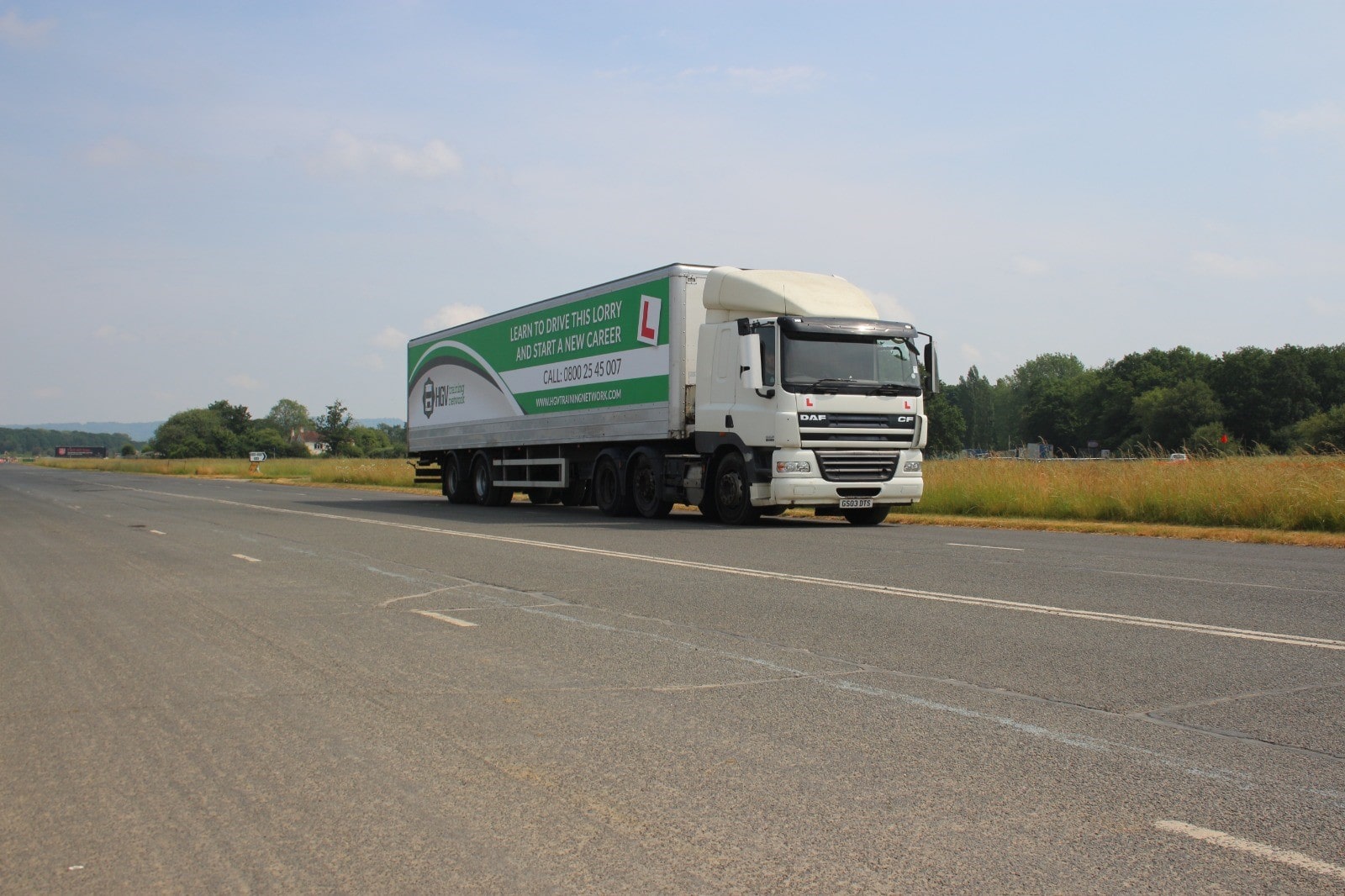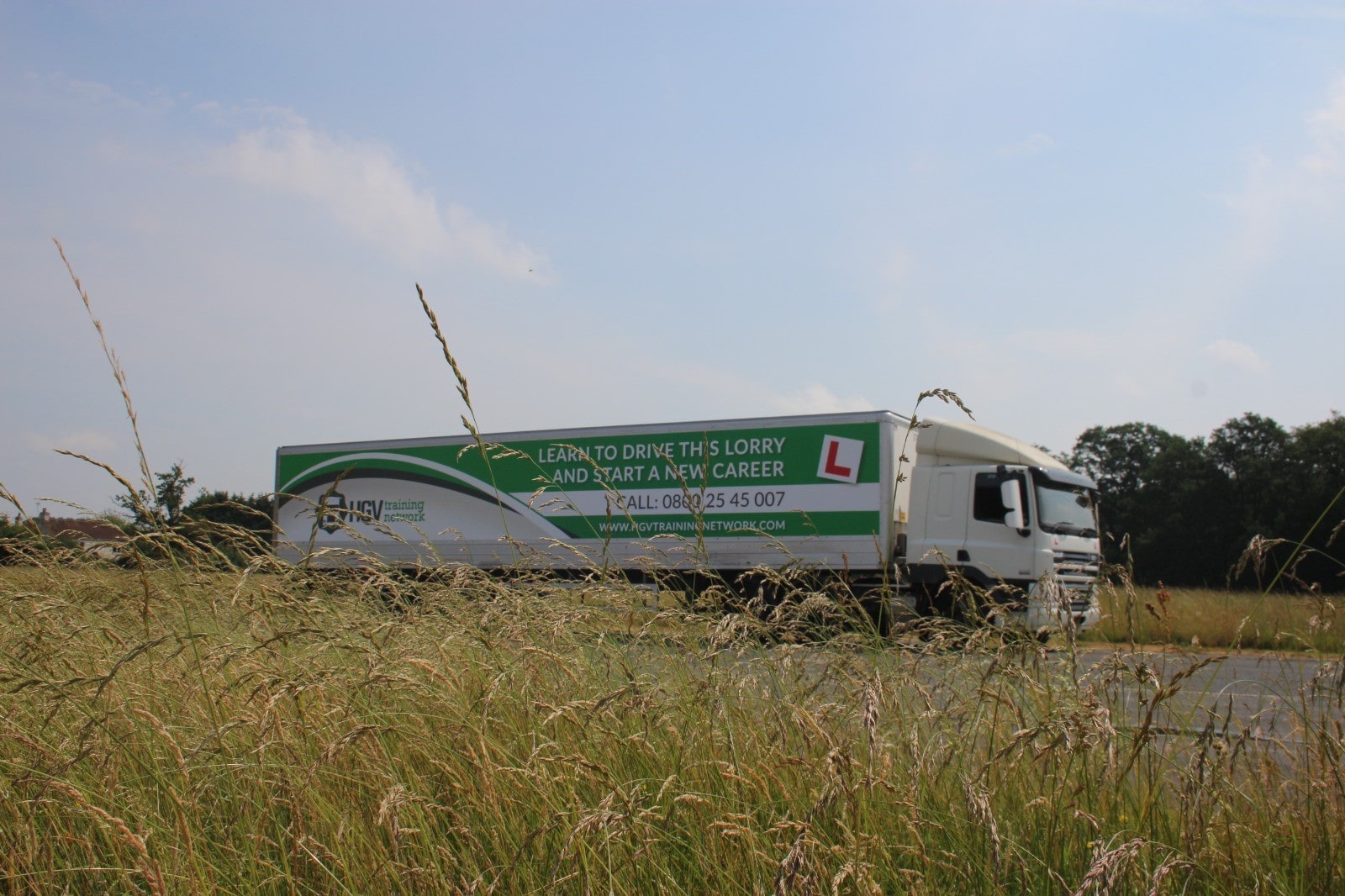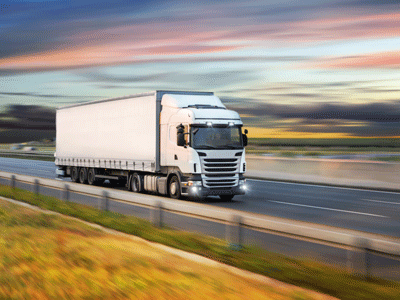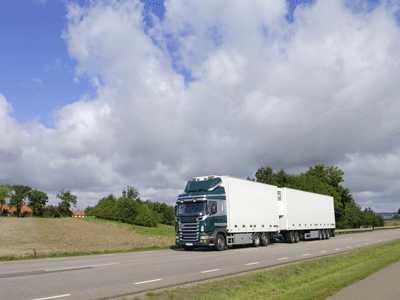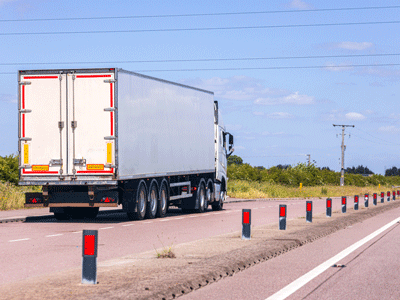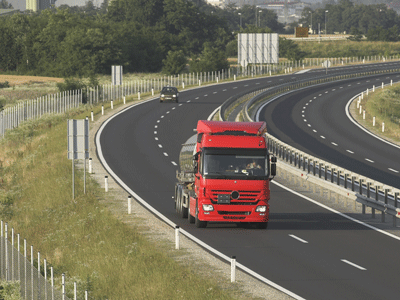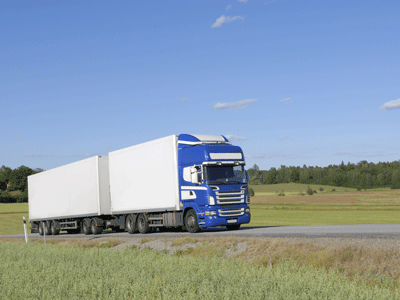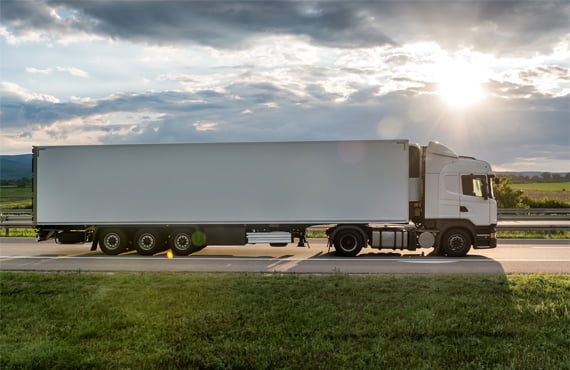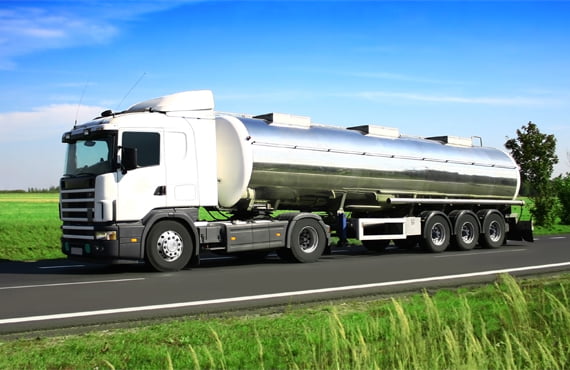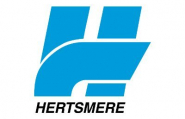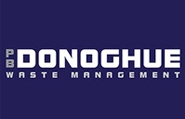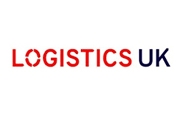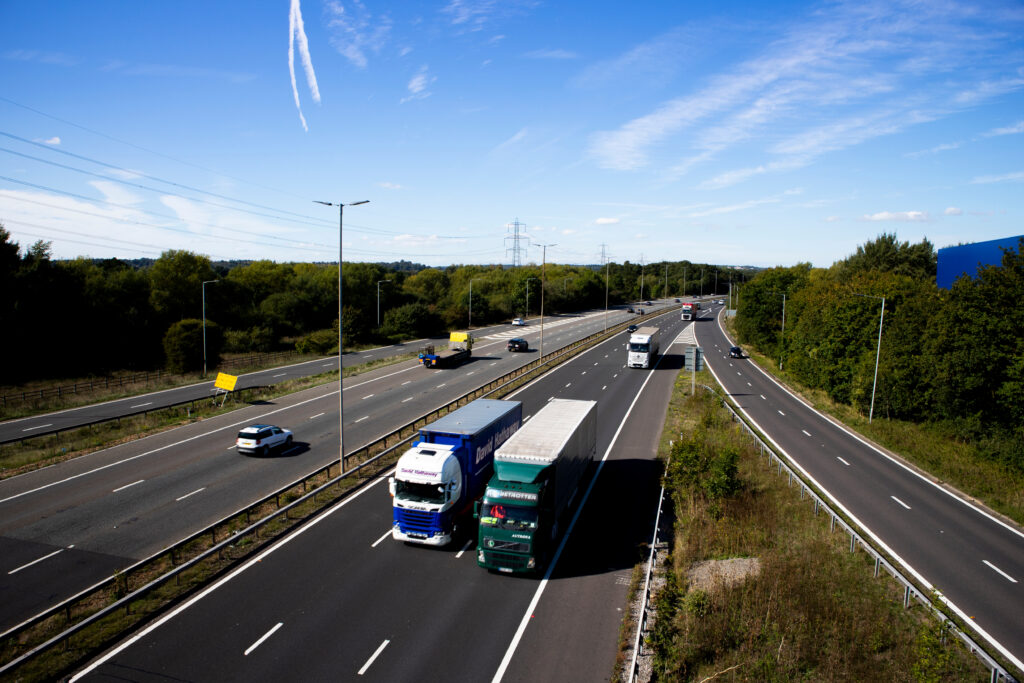Get A Quote

HGV Training
If you’re thinking of changing your career path and can see the huge benefits of becoming a HGV driver in the UK, HGV Training Network can help. We offer a complete range of high-quality HGV training courses to help you obtain your licence in the best possible way. Our courses provide all the skills and knowledge you need to succeed. Find out more by watching our Free HGV training video designed to guide you through the process. For further info, don’t hesitate to get in touch
on 0800 254 5007.

Learn how to drive a HGV in 4 steps
Due to the current driver shortages, there has
never been a better time to become a lorry driver.
What we do as an HGV training provider
We are one of the largest HGV training course providers with over 50 HGV training centres in the UK. We provide specialist lessons for HGV training, LGV training, PCV training, Driver CPC training and C1 driver training (Ambulance driver training).
We have many years of experience in getting people trained from scratch into highly paid driving jobs.
We are fully accredited by all the main industry bodies including Logistics UK and all of our driving tests are set by the Driver and Vehicle Standards Agency (DVSA).
Benefits of HGV training
Choosing a career is something most people do at some stage in their lives. Some even change careers a few times throughout their working lifetime. The logistics industry is one of the most important sectors worldwide, ensuring goods arrive safely at destinations within the UK and beyond. This helps ensure manufacturing continues and supermarket shelves remain stocked, to name but two key areas. If you want to become an HGV driver, you’ll need to undergo HGV training to gain the relevant licence. But is the HGV journey worth it? Here are some of the benefits if this is a route you’re considering:
- The Abundance of Work and Jobs
If you acquire your HGV licence, an abundance of work and jobs will become available to you, not least because, as noted, HGV drivers are in huge demand right now. Learning to drive these vehicles is a good career choice for anyone looking to capitalise on future demand, especially in the logistics industry.
- Excellent Salary
Drivers have a responsibility to deliver their goods safely and punctually. You can expect to earn a rewarding salary if you meet the criteria. Drivers typically earn between £25,000 and £40,000 at entry-level, with wages rising to £55,000 a year or more based on experience, distances driven and the type of goods they are carrying.
- Job Security
Because the demand for drivers is so high at the moment, and because logistics is an industry that will always be necessary, aspiring HGV drivers can expect outstanding job security in their new roles. With shortfalls throughout the industry, there will also be plenty of opportunities to move between companies for career advancement. In short, at present and for the foreseeable future, the benefits of working in logistics and other areas lie mainly with the driver rather than the employer.
- Transferable Skills
Even if you decide in a couple of years that this is not the career for you, an HGV licence opens plenty of doors to future roles within logistics and other industries. With the right training, you can acquire a range of highly transferable skills, from driving large vehicles to organisational skills, spatial awareness, approachability and more. You’re likely to be much in demand in an increasingly competitive jobs market.
HGV Training Explained
The term ‘heavy goods vehicle (HGV) driver’ refers to a truck or lorry driver who is responsible for transporting chemicals, food, construction equipment, and other heavy products across long distances. HGVs are also known as large goods vehicles.
To obtain one of four distinct categories of HGV licence, all heavy goods vehicle drivers, regardless of their country of origin, must complete training in driving commercial vehicles and pass an HGV training course from a reputable driving school for large trucks. Truckers who transport items across various countries’ borders must make themselves aware of each country’s driving and rest restrictions, as well as any associated rules. Transport and shipping companies typically hire individuals with an HGV licence.
If you are attracted by this type of career, your first step should be to investigate training options. It’s also advisable to seek out a training provider that offers reasonable HGV training costs.
With the current shortage of HGV drivers Europe-wide, the HGV training cost is now more affordable than ever.
The Difference Between Class 1 and 2 HGV Training
If you’re wondering whether you need LGV class 2 or HGV class 1 training, the answer is essentially that it all depends on the type of vehicle you want to drive. Broadly speaking, if you want to drive a lorry with rigid sides, you need an HGV Class 2 licence. If you’re planning on looking for jobs driving an articulated lorry, you need an HGV Class 1 licence.
Lots of drivers choose to take HGV class 2 training and get their Class 2 licence first, and then work up to a Class 1 licence, but it’s a matter of personal preference and confidence behind the wheel.
Looking at different categories of driver’s licences, you will initially need a Class B licence to drive a car.
Training for category C1 means you are licensed to drive an HGV vehicle between 3.5 tons and 7.5 tons. A C1+E licence qualifies you to drive a vehicle up to 7.5 tons with a trailer attached. A full category C licence permits you to drive any vehicle up to 32 tons, while a category C+E licence is the highest level. With this, you can qualify to drive trailer vehicles, any artic lorry combination and all drawbar trailers.
Becoming an HGV Driver
Heavy Goods Vehicle (HGV) drivers transport truckloads of products between suppliers and customers. Some HGV drivers cover long distances to deliver products, while others may work locally. While HGV drivers spend a significant amount of time in their vehicles, they also have numerous other duties to complete at each end of the journey.
Responsibilities may include:
- Devising strategies to increase production and efficiency, such as checking ahead for traffic or delays, as well as planning backup routes where required.
- Having good communication skills to interact with clients when picking up and dropping off goods. Coordinating pick-ups and drop-offs so that they work for everyone is part of this.
- Supervising the loading and handling of goods at either end, making safety checks on the vehicle, ensuring goods being transported are secure while in transit, and completing all relevant paperwork at either end are also key responsibilities.
The best large-good vehicle driving courses will cover many of these areas.
How to Get Your HGV Licence
You must be at least 18 years old and have a full car driver’s licence. You can then apply for your HGV provisional licence. The type of licence you need depends on the size and type of vehicle you want to drive. The D2 and D4 forms are available from us.
Please Note: You have to complete and pass your vehicle theory HGV test before you can start any kind of HGV training.
You then need HGV driving lessons to prepare for taking the road test by the DVSA.
Once you have passed, you will complete your Certificate of Professional Competence (CPC) exam. That covers four areas:
- Ability to load/unload the vehicle
- Securing loads
- Vehicle checks
- Vehicle security checks
If you are now ready to kick-start your driving career, then visit us today. We offer the best HGV driver training courses at 50 locations across the UK and can help you secure a licence quickly with the ability to train now and pay later.
Looking to Get a Higher-Paying Driving Career? HGV Training Network Can Help!
If you want to acquire high-paying driving jobs and reduce the risk of accidents on the road, then our HGV training is perfect for you. HGV training courses are a great way for individuals to enter higher-paying driving careers.
We at HGV Training Network have been helping people do just that for years, and we’re proud to be the best at what we do. Our instructors are experienced professionals in the field, and they will work with you to ensure that you have all the skills you need for success.
Our courses cover everything from vehicle safety and maintenance to heavy-load driving and manoeuvring in tight spaces. The courses here at HGV Training Network are also specially designed to reduce accidents on the road—not only for yourself but also for others around you.
Whether your goal is to become an HGV driver or simply increase your confidence when driving large vehicles, we can help! Our online format makes it easy for you to learn at your own pace and create an individualised study plan tailored just for you.
Get on the Road to a New Career with our HGV Training Courses!
- HGV Training Finance is available for those who cannot afford to pay upfront – we offer a “Train Now and Pay Later” service in partnership with Snap Finance
- Driving tests directly administered by the Driver and Vehicle Standards Agency (DVSA)
- Work with a top-notch, professional team that is dedicated to providing the best possible service
- Fast HGV course completion times so that you can get on the road as soon as possible
- Exceptional success rates ensure that you can be confident in your ability to ace your driving test
- Fully accredited training process – We guarantee that you are getting the best possible training
- We are one of the largest HGV training course providers in the UK, with over 50 centres across the country
- FREE job-finding service – start earning money as soon as you have passed your driving test
- Our exclusive recruitment partnership with Blue Arrow ensures that you find the best possible job
- Experienced UK HGV trainers – you can be confident in our ability to teach you
- Our 5-star rated training services guarantee results
- Save money with our affordable HGV training courses
- Enjoy fast and hassle-free online booking
HGV Training Network Offers Top-of-the-Line Customer Service!
At HGV Training Network, we believe that the customer experience is everything. And when it comes to HGV training, we are committed to providing you with an outstanding experience. Our easy and straightforward process makes it possible for anyone to get started without having to worry about whether or not they’re doing everything correctly. We have an excellent customer review rating, and our trainers are friendly and accommodating. We pride ourselves on our quick response rate, ensuring that all of your questions will be answered in a timely manner. We also go above and beyond to ensure that you are satisfied with our services —and we want to hear from you! Someone who has a successful HGV driving career is what makes us tick. If there’s anything we can do better whether it’s regarding our HGV practical training or otherwise, let us know.
Licenses We Train For

Finance Available – Train Now and Pay Later
The effects of Covid 19 have hit nearly everybody in the pocket. Spread the cost of your training. Making it even easier to get started straight away. Find out within minutes if you are eligible, Get a decision instantly.

Over 50 centres across the UK
We have the Largest network of high-quality training sites in the UK – our training centres cover nearly all major towns and cities across England, Scotland and Wales.

Get a job after you pass!
With the driver shortage currently sitting at 100,000 drivers needed, we have setup an exclusive partnership with Blue Arrow, one of the UKs largest specialist staffing companies. Blue Arrow hire drivers for some of the biggest companies in the UK.
Read the Reviews about our 5 Star rated training package
Ellenor
Aaron
Philip
Dean
John Bryant
Our Clients
Latest News
Latest News
Enquiry Form
Recent Tweets
Enquiry Form
Recent Tweets
Frequently Asked Questions
Is there a shortage of HGV drivers in the UK?
The current driver shortage is now sitting at around the 100,000 mark. This is now reaching a real crisis point as the demand for distribution keeps on increasing year on year.
The industry is currently losing nearly 4,000 drivers a year to retirement, as the average age of an existing HGV lorry driver is 53 years old.
The demand has also increased by nearly 40,000 drivers during the COVID-19 pandemic and Brexit.
Why is there a HGV driver shortage?
The average age of a UK HGV driver is 53 years old and only 2% of drivers are under the age of 25.
That means with the amount of people retiring, there aren’t enough drivers to fully sustain the industry and to continue delivering high-quality services. If something isn’t done to try and attract more drivers, the industry shortage will have a huge and long-lasting impact on the goods that are being delivered up and down the UK.
The haulage industry has also blamed the driver shortfall on a post-Brexit exodus of European drivers. The Road Haulage Association estimates that up to 20,000 HGV drivers from the EU left during the Brexit process.
It is also estimated that the extra demand for more drivers during the COVID-19 pandemic has increased the demand for HGV drivers by an extra 20,000 as more and more products are being delivered to residential addresses.
How long does it take to learn to drive a HGV?
Once you have the correct provisional entitlement on your licence and you have passed your theory tests, we deliver our HGV Training training courses in only 5 days. Typically, it is done all in one week, the training would start on a Monday morning and finish on a Friday afternoon. The test with the DVSA is done as soon as you finish your training.
So you sit your test while the HGV training is still fresh in your mind. Giving you the best chance of passing the first time and you can drive vehicles immediately.
How much does a HGV driver earn?
A typical class 2 driver earns between £25,000 – £38,000 per year
A typical class 1 driver earns between £30,000 – £55,000 per year
A typical tanker Truck driver (ADR) earns between £40,000 – £60,000 per year
Where will I do my HGV training?
We currently have over 50 HGV Training centres across the UK,
click here to find your closest location
How much does HGV training cost?
All of our HGV training courses are tailored to each student’s needs. We can even pick up from whatever stage you are currently at with your HGV training. Finance is also available through us, so “Train Now and Pay Later” can spread the costs of the course for up to 36 months.
Can you go straight to Class 1 HGV Training?
Yes, you can, after a recent change in the law by the Government in November 2021. However, many experts recommend it’s better to pass the Class 2 HGV training test first to give you road experience and confidence in driving vehicles larger than a car before jumping straight into driving an HGV.
Do I need a medical test to drive an HGV?
Yes. This is because all drivers must be deemed healthy and fit enough to drive HGVs on British roads, according to law. You’ll be required to provide a completed D4 HGV medical form in order to be able to drive a heavy goods vehicle.
Is it worth it to become an HGV driver in 2023?
Yes, it is worth becoming an HGV driver in 2023. With the growth of online shopping and the increased need for goods to be transported, there is a high demand for HGV drivers. Moreover, the pay and benefits for HGV drivers are good, and there are many opportunities for career growth.
How long does it take to learn to drive an HGV?
Once you have the correct provisional entitlement on your licence and you have passed your theory tests, we deliver our training courses in only five days. Typically, it is done all in one week, with the training starting on Monday morning and finishing on Friday afternoon.
The test with the DVSA is done as soon as you finish your HGV training. So, you sit your test while the training is still fresh in your mind, giving you the best chance of passing first time.
Is it hard to pass an HGV training test?
It depends on the person. Some people find it easy to pass the test, while others find it more difficult. The most important thing is to prepare for the test by studying and practising as much as possible. Of course, the best way to do this is with the help of a good training provider. Make sure you choose a reputable school with qualified instructors who can help you pass the test on your first attempt, like HGV Training Network.
What the difference between HGV and LGV?
HGV stands for “heavy goods vehicle” and LGV stands for “large good vehicle”, not “light goods vehicle” as some mistakenly believe. This means that, under UK and European law, an HGV license and an LGV licence are fundamentally the same thing. They cover all commercial lorries featuring a gross combination mass of over 3500kg, which includes fridge trucks, box vans, Luton vans, flat beds, tippers and more.
Why choose the HGV Training Network?
We arrange everything for you: from your first medical and the provisional application stage, to arranging the theory and practical parts of your test. If you require the licence as part of your career, we will even help you obtain your driver’s CPC qualification. Once you are qualified, we can even help you arrange interviews so you can get your first job as a professional driver.
We handle everything. You can even start the driving lessons now and pay for it later.
How much does HGV training cost?
All of our HGV Training courses are tailored to each student’s needs. We are even able to pick up from whatever stage you are currently at with your HGV training finance is also available through us, so “Train Now and Pay Later” and spread the costs of the course for up to 36 months.
How does the HGV training theory test work?
The HGV Theory Test is broken down into two parts just like a car licence;
1. Hazard Perception Test (identifying developing hazards in video clips)
2. Multiple Choice Test (multiple choice questions).
Both parts of the test are computer-based, and we will provide you with industry-standard online revision material which mirrors your tests at the Theory Test Centre.
Will HGV Training Network help me get a job as a HGV driver?
Once you have passed your test, we will help you get in to work by putting you on to our partners at Blue Arrow. Just tell them what sort of jobs you’re looking for and how far you’re prepared to travel, and they will do the rest!
We also get your applications underway by sorting out your CV and Cover Letter to Industry standard.
Is driving a HGV hard?
While driving a lorry can be a lucrative career, it is not necessarily easy. You’ll be on the road for long hours so you need to be patient and self-motivated. You also need the right lorry driver training and a proper licence to land a job in the first place.
Finding high-quality “HGV training near me” can help you assess whether you have the skills and the personal qualities required.
How long is the HGV practical test?
The practical test is designed to ensure that you can drive competently and safely in a variety of road and traffic situations, as well as checking that you understand The Highway Code (and can demonstrate this by the way you drive). The test lasts around 60 minutes.
How hard is it to get an HGV training licence?
It’s not hard to get an HGV licence, provided that you undergo proper training under a reputable instructor. The process is fairly straightforward and can be completed in as little as a few weeks, although some people may take a bit longer, depending on their experience and qualifications. Regardless of what your current skill level may be, getting proper training is crucial in order to get your licence.
Can HGV drivers work 7 days a week?
Yes, HGVs can legally be driven for 7 days a week. However, drivers must take a break of at least 45 minutes after 4.5 hours of driving. What’s more, they cannot work more than 9 hours per day or 56 hours per week.
How many 15-hour days can I do after HGV training?
There is no set number of hours that you can do after HGV training. However, it is important to remember that you need to rest and allow your body to recuperate in order to be able to continue working safely. Driving for long periods of time can be dangerous, so please make sure that you are taking the necessary breaks.
How much do drivers who took HGV training earn in the UK?
The salary for HGV drivers varies depending on their experience and the company they work for. Some companies also offer bonuses and overtime pay.
As HGV drivers are in very high demand these days, you can expect highly competitive salaries in general. In the UK, HGV drivers can earn up to £55,000 a year on average.








